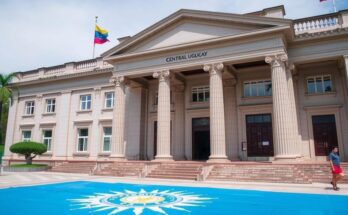Migration through the Darien Gap experienced a significant increase in September 2024, largely due to Venezuelans fleeing political instability after recent elections. Over 80% of the migrants were Venezuelan, facing diminished humanitarian aid in Panama. Although overall migration numbers have decreased in 2024, a surge in September indicates persistent migration pressure amidst challenges caused by political and humanitarian issues.
In September 2024, migration through the Darien Gap, an arduous jungle route between Colombia and Panama, surged significantly, primarily due to an influx of Venezuelans following the contentious presidential elections in Venezuela. Data from the Panamanian government indicates that Venezuelans constitute over 80% of the recent migrant flow, raising concerns about their welfare amidst diminishing humanitarian support. According to a report by Refugees International, the post-election crackdown in Venezuela has catalyzed this uptick in migration as individuals seek asylum from the consequences of the July 28 elections. In the single month of September alone, 25,111 migrants traversed the gap, marking a 51% increase from the previous month. Despite this escalated migration, the overall number of individuals crossing the Darien Gap in 2024 has decreased by 36% compared to the same timeframe in 2023. Panamanian President José Raúl Mulino, who assumed office on July 1, had previously declared intentions to mitigate migration by closing certain access points and initiating repatriation efforts, notably excluding Venezuelans due to diplomatic strains between the two countries following the election results. While there has been a slight decrease in overall migration numbers, the spike in September suggests that governmental measures may only have temporarily curtailed the rate of migration. Many migrants, upon reaching Panama, encounter a scarcity of humanitarian assistance, exacerbated by the suspension of operations by organizations like Doctors Without Borders (MSF). This suspension was reportedly a response to previous criticisms of the Panamanian government regarding their handling of rising sexual violence rates in the Darien region. However, as of last week, MSF has resumed its operations, providing critical medical care to thousands of migrants in need.
The Darien Gap is a treacherous and isolated area that has become a key transit point for migrants from various countries, particularly Venezuela. Since 2022, Venezuelans have been the predominant national group attempting to cross this perilous route, largely due to the ongoing political instability and humanitarian crisis within Venezuela. The aftermath of the recent elections has intensified this migration pattern as many flee governmental repression and seek refuge in other countries, including the United States. The Panamanian government’s response to the rising number of migrants has included the implementation of stricter immigration controls and the facilitation of repatriation flights in partnership with the United States, although Venezuelan migrants remain in limbo due to diplomatic tensions.
In summary, the increase in migration through the Darien Gap in September 2024, primarily driven by Venezuelan nationals, highlights the continuing ramifications of political turmoil in Venezuela. While government efforts to manage migration are apparent, the realities faced by migrants—including reduced humanitarian support and external political tensions—present significant challenges. The humanitarian situation remains precarious, necessitating immediate attention from both governmental and non-governmental organizations to address the needs of this vulnerable population effectively.
Original Source: apnews.com




